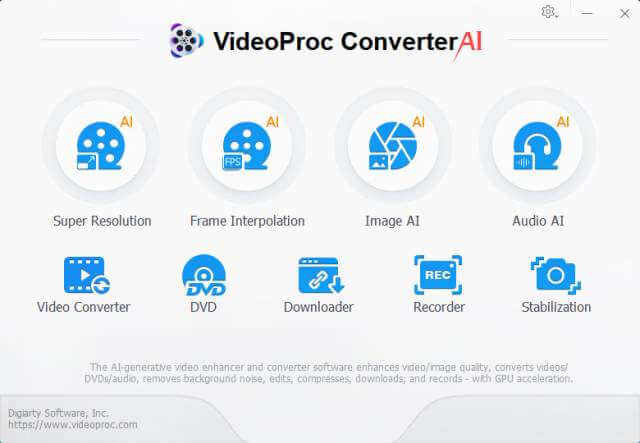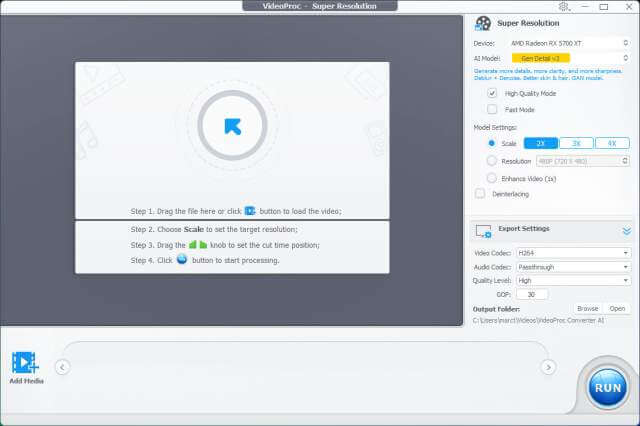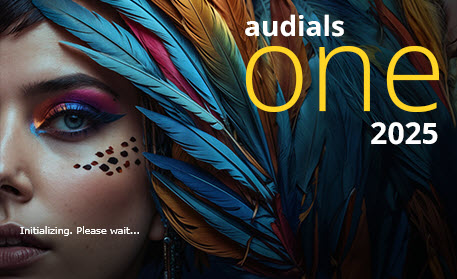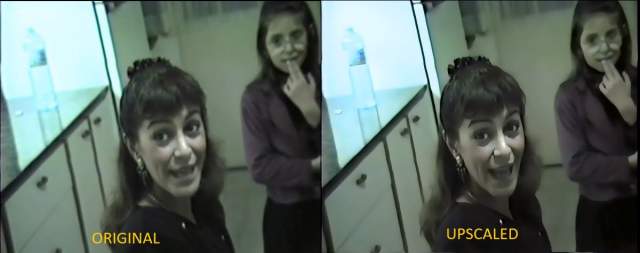As I’ve mentioned in several articles, I convert VHS tapes to digital format for clients, and recently I’ve been playing with software that uses AI to ‘improve’ the video quality by upscaling with various AI models. Fellow author Jim Hillier has also written about video upscaling in Aiarty Video Enhancer V2.5 Major Update! So, naturally, I was curious to see how our experiences compared. I have used two different programs so far with similar results.
VideoPro Converter AI
I’ve been using VideoProc for several years, and it was recently updated to the AI version, so I was curious to see how upscaling could improve the quality of VHS videos. The interface is simple and uncomplicated, and I chose a short, two-minute video, thinking that the process would take forever.
I then selected to double the resolution from 720×480 to 1440×960, to use the default Gen Detail v3 AI model, and to my surprise, the conversion only took around three minutes.
To my mind, the improvement is slight, softening the tones and generally taking out the sharpness of the original, but not much else. Fortunately, the original video from the 90s, which is on a VHS-C tape, is already of good quality, which probably explains why the improvement is marginal.
Audials One 2025
Audials is a little more comprehensive than VideoProc, so I dropped the same two-minute video into it, chose the default Pollux AI model, and hit QUEUE. The conversion of this two-minute video took nearly two hours, so I can only imagine that Audials uses a more sophisticated AI model than VideoProc, but I’m just guessing. To be honest, with the amount of time it took to convert a short, two-minute video, the end result is not exactly earth-shattering.
The converted video through VideoProc, which only took around three minutes to convert, looks remarkably similar in quality, so I’m left wondering if the time and effort are really worth it because the improvement is marginal at best.
I then ran a different video of thirty-seven seconds through VideoProc, which took about fifteen minutes to convert, then through Audials, which took around forty-five minutes, and again, the result was a marginal improvement. I should add here that I use two gaming PCs running Ryzen CPUs and beefy AMD Radeon GPUs, so the machines are well up to the job.
Whilst I won’t be completely giving up on AI upscaling, I will try to dig out videos of very poor quality and see if I can improve them, which, in my opinion, is when this software comes into its own.
—






Hi Marc. Glad you submitted this article. Like you mentioned, you need a very fast CPU & GPU when converting and the results do not change that much. Maybe there is a better result with photos than with videos, Mindblower!
Indeed, Mindblower
The results are pretty good and more noticeable with photos and yes, you do need a powerful PC for upscaling.
Cheers
Marc